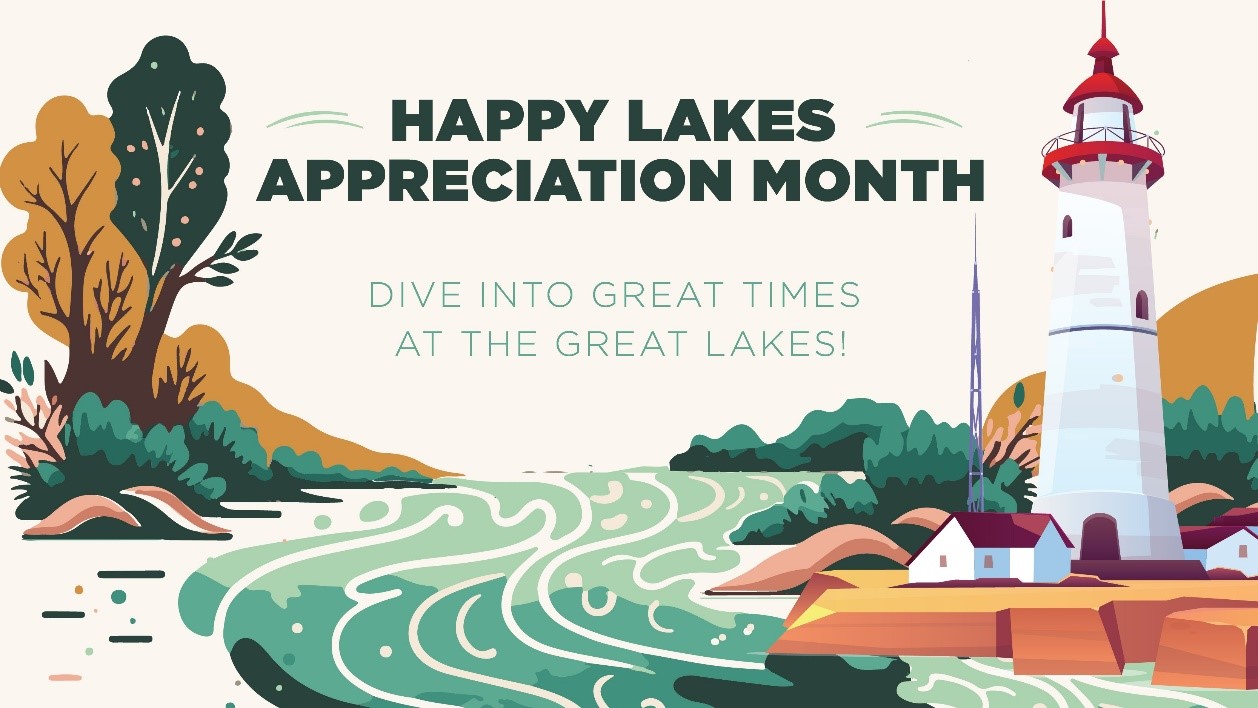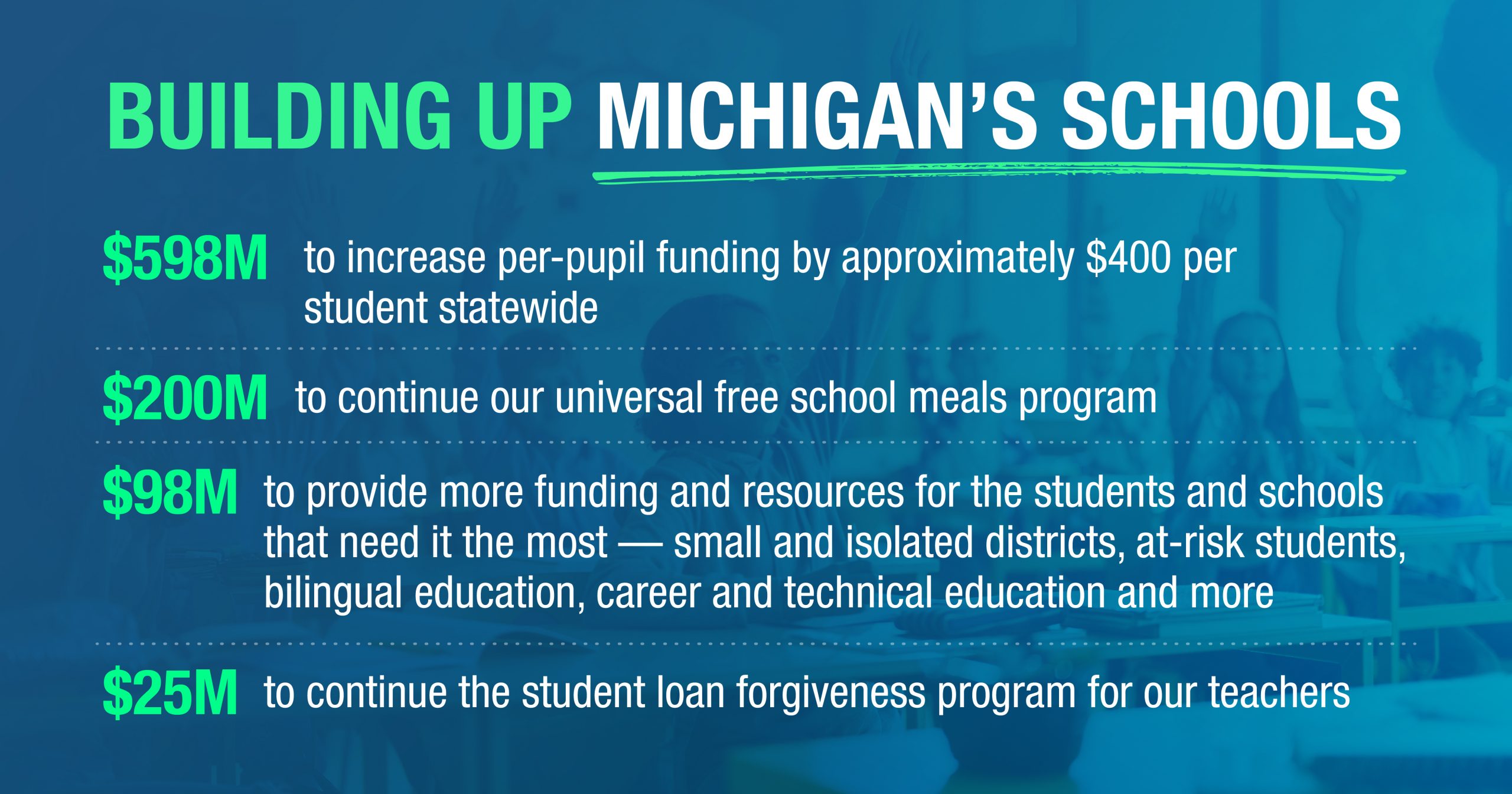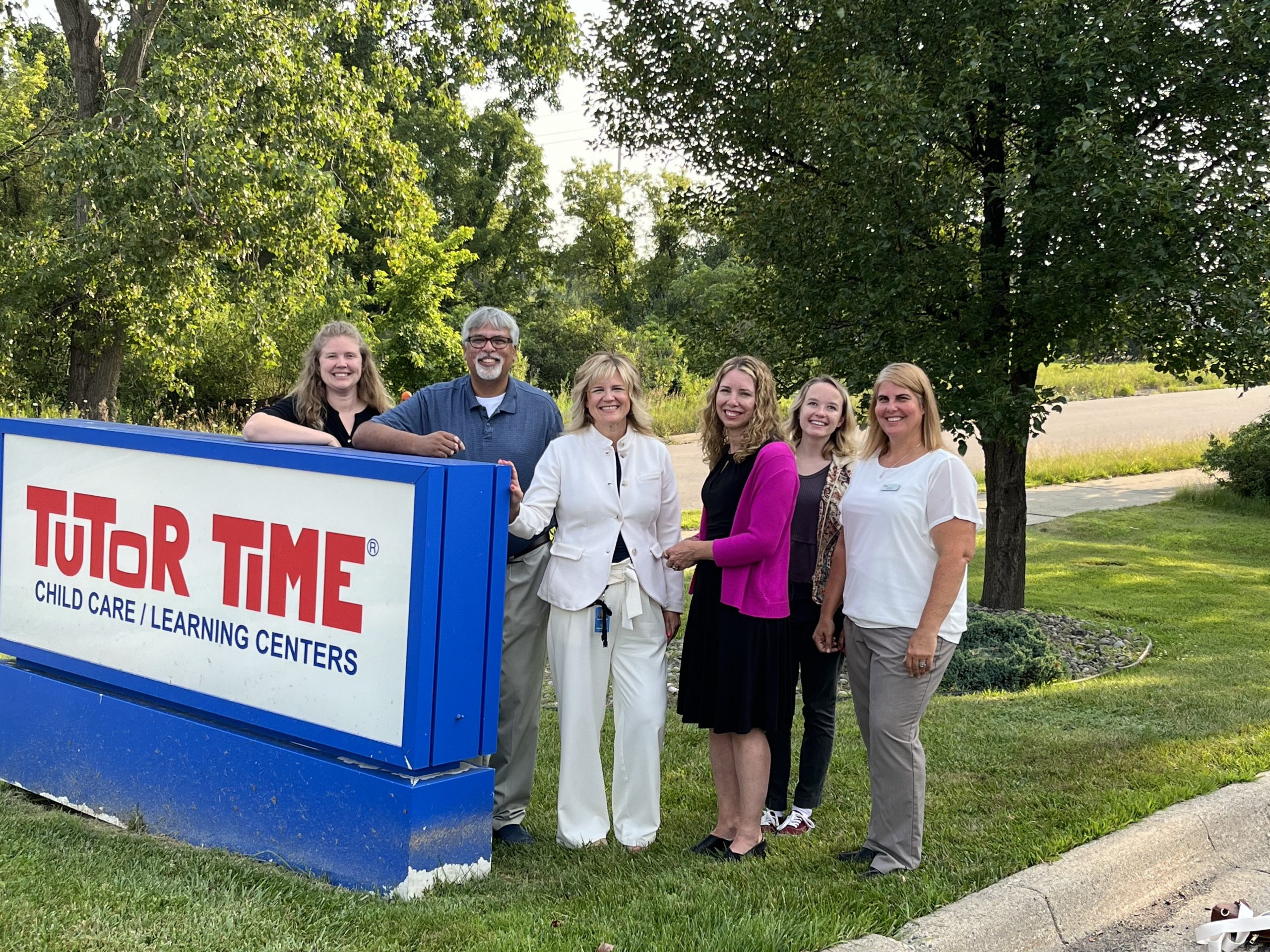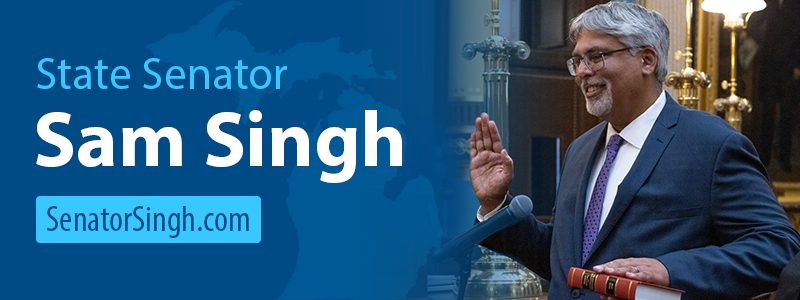Featured in This Newsletter
- Recent News
- Legislative Updates
- In the District
- Upcoming Coffee Hour
- Stay in Touch
Recent News
New Opportunity for Michiganders to Help Create Michigan’s First-Ever Statewide Community and Worker Economic Transition Plan
An important piece of Michigan’s historic clean energy and climate action legislation I spearheaded with Senate colleagues last year included a plan to create a new Community and Worker Economic Transition Office. This office, established by the Michigan Department of Labor and Economic Opportunity (LEO) earlier this year, is tasked with developing proactive strategies that help companies and Michiganders take full advantage of the high-tech, high-paying jobs coming to the state in the auto and energy sectors.
As part of this work, the Michigan Department of Labor and Economic Opportunity (LEO) just announced they are seeking applications for the new Community and Worker Economic Transition Office Advisory Committee. The Advisory Committee will help create Michigan’s first-ever statewide transition plan that will support communities, workers and employers in the fossil fuel and automotive industries who are subject to significant economic transition.
Advisory Committee members will represent communities, industries and labor organizations impacted by the clean energy and automotive transitions to serve as advisors across four committee pillars:
- Employee Engagement and Empowerment: Experience representing workers, workforce development and/or employee advocacy; knowledge about the challenges and opportunities for transitioning workforces.
- Community Resiliency: Background in local governance and/or community engagement; skill in addressing the impacts of economic and industry transitions on communities and residents.
- Industry Growth and Diversification: Experience with the energy and automotive sectors and insights into economic trends, talent development needs and challenges with industry adaptation.
- Data and Analytics: Experts in economics, labor market data, and/or policy analysis with skill in providing data-driven insights and supporting strategic planning efforts.
LEO encourages applications from individuals with knowledge about the challenges and opportunities in economic transitions impacting our state’s workforce, skill in addressing the impacts of industry transitions on communities, insight into job creation and employer adaptation, or expertise in data-driven analysis and strategic planning. Membership will reflect diversity in background and expertise, affected industries and demographics across the state. Applications to serve on the Economic Transition Advisory Committee are due by August 31, 2024.
Learn more about the committee and apply at Michigan.gov/EconomicTransition.
New Renewables Ready Communities Program Set to Launch
Gov. Gretchen Whitmer recently announced the U.S. Environmental Protection Agency (EPA) has awarded the State of Michigan $129.1 million from the Biden-Harris administration’s Inflation Reduction Act’s (IRA) Climate Pollution Reduction Grant (CPRG) program to accelerate the deployment of renewable energy like wind, solar, and storage. The investment will help Michigan meet its 60% renewable energy and 100% clean energy standards set under the recently enacted clean energy laws. Getting this done will create good-paying jobs, drive down energy costs, and protect the state’s air, land, and water.
This funding will allow the state to launch Renewables Ready Communities (RRC). Administered by the Michigan Dept. of Environment, Great Lakes, and Energy (EGLE), the program will incentivize the permitting of renewable energy projects through local processes. The RRC Program will help overcome barriers to siting renewable energy and help the state reach its goal of 60% renewable energy by 2030. Deploying renewable energy at scale is critical to meeting the state’s climate and energy goals, and siting is arguably the most important barrier we face to build more solar, wind, and so much more across Michigan.
Interested communities and stakeholders can reach out to EGLE-OCE@Michigan.gov for more information. Check out EGLE’s website to learn more about the ongoing Renewables Ready Communities Award pilot.
Recognizing People with Disabilities
Friday, July 26 commemorated National Disability Independence Day, the 34th anniversary of the passage of the Americans with Disabilities Act in July 1990 — a historic milestone in advancing the rights of all people with disabilities. Since then, Disability Pride Month (recognized each July) has become a celebration of the unique experiences, strengths, and achievements of people with disabilities. It is also a time to recognize that people with disabilities often face discrimination or marginalization based on their disability, race, gender, sexual orientation, or other intersecting factors.
Disabilities are a beautiful and natural part of human diversity, and we strive to create an inclusive and accessible society that enables individuals with disabilities to live fulfilling lives and participate in their communities. Activities during Disability Pride Month are aimed at inspiring all citizens to celebrate the contributions of persons with disabilities, promote inclusivity, and foster greater respect and understanding.
Celebrating Michigan’s Many, Many Lakes During National Lakes Appreciation Month and Beyond!

Here in Michigan, we take pride in being known as the Great Lakes State. Our five Great Lakes are the source of 20% of Earth’s total fresh water. In addition to these, Michigan is also home to more than 11,000 inland lakes (You can find one near you using this interactive map).
Our lakes and various waterways are integral to the health of our families and our economy. The Great Lakes system is invaluable as the source of drinking water for more than 40 million people in the U.S. and Canada, and the Great Lakes shipping industry generates more than $36 billion in economic activity and supports more than 664,000 jobs. Our lakes also provide families with unmatched recreational opportunities.
Since taking office, my colleagues and I have:
- Secured over $105 million in the 2025 State Budget for statewide water infrastructure projects, building on the progress made in the previous year’s budget. Funding will go towards replacing lead service lines, rebuilding sewers and more.
- Championed the historic Clean Energy Future package which sets clean energy standards, promotes energy efficiency, and creates the Office of Community and Worker Economic Transition.
- Passed legislation to require environmental protection and cleanup standards to ensure bad actors pay to clean up their pollution, rather than having taxpayers foot the bill.
- Repealed a harmful law that restricted Michigan officials from implementing environmental and public health safeguards beyond federal standards, empowering Michigan to protect its natural resources and environment more effectively.
During National Lakes Appreciation Month and beyond, Michigan Senate Democrats remain committed to building on this work and advancing legislation to strengthen environmental protections, so future generations of Michiganders can enjoy our state’s lakes for years to come.
Legislative Updates
Back-to-School Budget Signed

On Tuesday, July 23rd, Gov. Gretchen Whitmer put her stamp of approval on the K-12 budget for the 2024-25 school year. This budget continues putting Michigan students and educators first and foremost, helping to set our kids up for futures full of success and opportunity.
Last year, our Democratic majority began the popular free breakfast and lunch program for all Michigan public school students — and in this year’s budget, we continued this critical program to ensure that Michigan’s 1.4 million public school students are well-fed and able to focus on learning. More information about the free breakfast and lunch program can be found here.
Our education budget also implements the state’s first-ever “Opportunity Index” equity funding formula that strategically invests more dollars into districts based on their concentration of poverty, prioritizing students and schools with the highest level of need.
We also delivered on the promise of two years of free community college for high school graduates, helping improve access to higher education and better paying jobs. This ensures that every Michigan high school graduate, beginning this year, can obtain an associate degree or skilled certificate tuition-free, saving over 18,000 students up to $4,820 annually.
Michigan Senate Democrats remain committed to meeting the needs and interests of students, educators, and families in every corner of our state, and we look forward to another school year full of learning, growth, and opportunity for our kids.
39 Bipartisan Bills Signed into Law
Just a couple of weeks ago, Gov. Gretchen Whitmer approved 39 bills, delivering on a diverse range of bipartisan priorities. Here are a few notable bills sponsored by members of our Senate Democratic majority that were recently signed into state law:
- Senate Bill 175 (Sen. Sylvia Santana) to improve consumer protections by ensuring fairness and compliance in property tax assessments.
- Senate Bill 328 (Sen. Kevin Hertel) to improve public safety by updating standards for smoke alarms.
- Senate Bill 350 (Sen. Rosemary Bayer) to expand the Michigan Promise Zone Authority Act to provide more financial assistance for student educational needs in underserved communities.
- Senate Bill 398 (Sen. Sean McCann) to equip state agencies with the tools needed to enforce environmental regulations and promptly respond to emergencies.
- Senate Bill 482 (Sen. Kristen McDonald Rivet) to reduce waste, save time, and lower costs by modernizing Michigan’s requirements for the disposal of medical sharps containers.
- Senate Bill 571 (Sen. John Cherry) to require prevailing wage on certain renewable energy construction state projects, supporting Michigan workers and bolstering our economy.
- Senate Bill 599 (Sen. Erika Geiss) to allow eligible incarcerated parolees with a terminal illness to be released to an approved placement instead of a medical facility, allowing the Department of Corrections to focus its resources where they are most needed.
In The District
Tutor Time Tour

I recently toured the Tutor Time facility in Okemos to discuss the challenges in early childhood education and the transformational impact that infant and early childhood mental health consultation has on teachers and families. Learn more about Tutor Time and the exciting work they’re doing in the early childhood education space on their website.
US-127/I-496 Road Construction Visit
I visited the road construction site on I-496 and US-127 to observe the progress and challenges of the project and see firsthand how it will positively impact our community, improving the flow of traffic and ensuring Michiganders can safely navigate from one place to another.
Great Lakes Bay Health Care Center
The Great Lakes Bay Health Centers do important, phenomenal work serving the health care needs of Michiganders, particularly those who are underserved, uninsured or underinsured. Recently I was able to visit the Great Lakes Bay Health Center in Owosso to engage with the staff, explore their services, and take part in the National Health Center Week event, where the mobile dental bus showcased their vital community contributions. I’m so grateful for these facilities that are driven by the belief that all people are entitled to quality health care.
Michigan Paving Briefing
At the Michigan Paving Briefing legislative breakfast, I was able to connect with our partners in the construction industry to discuss road funding and other issues the industry is facing. It was an insightful event, and I am looking forward to working with my colleagues in addressing these concerns in the state legislature.
Upcoming Coffee Hour
Summertime Coffee and Conversation

I love being able to regularly connect with constituents at my Coffee and Conversation events and hear about the issues you care about. I hope you can join me at the next one coming up this coming Monday, where you will also have the chance to get updates on what my Senate colleagues and I have been working on so far this year.
WHEN: Monday, August 12 from 6:00 – 7:00 p.m.
WHERE: Virtual — Register online
Stay In Touch
As always, if you or someone you know would like to provide feedback about what’s happening in Lansing or needs assistance, feel free to contact my office. You can email us at SenSSingh@senate.michigan.gov or call (517) 373-3447.
Sincerely,

Sam Singh
State Senator
District 28

